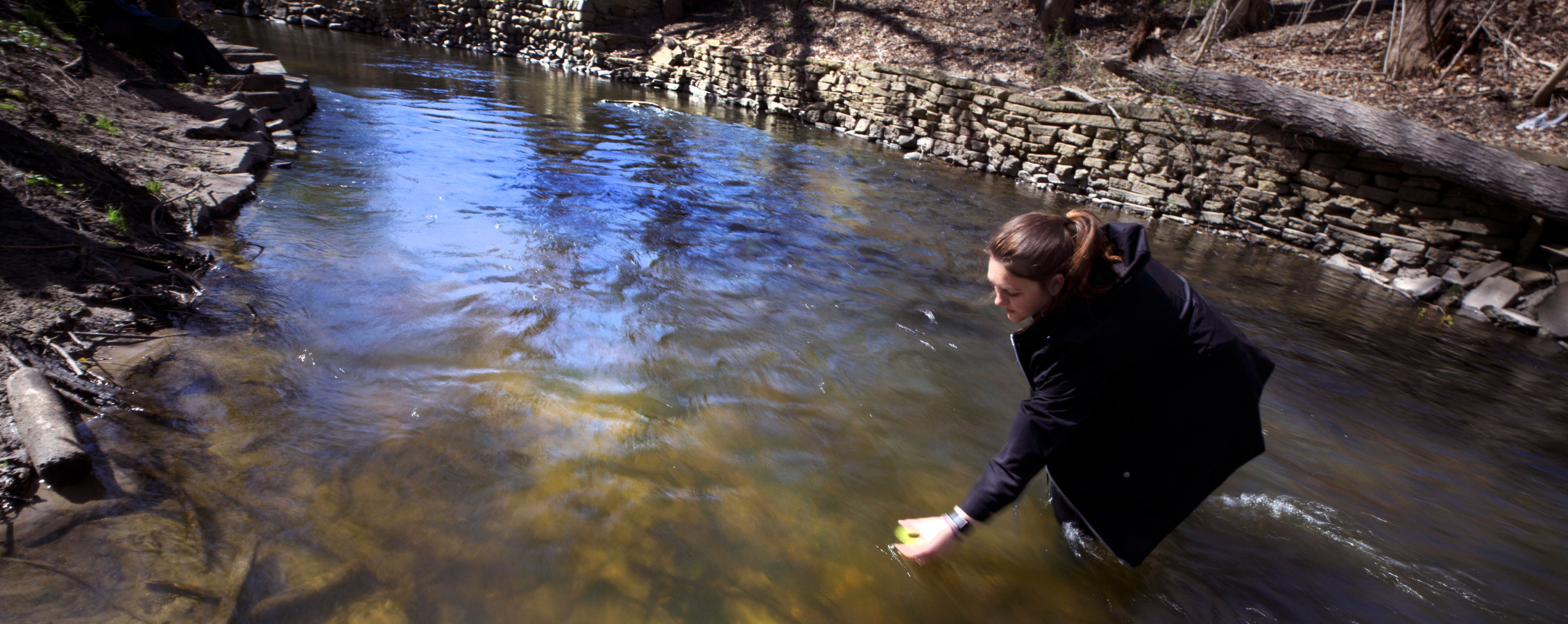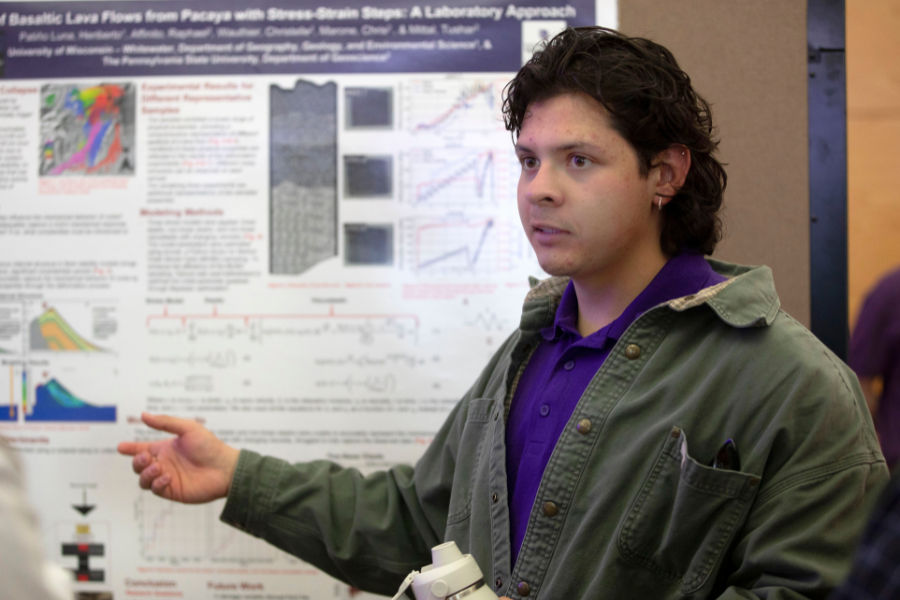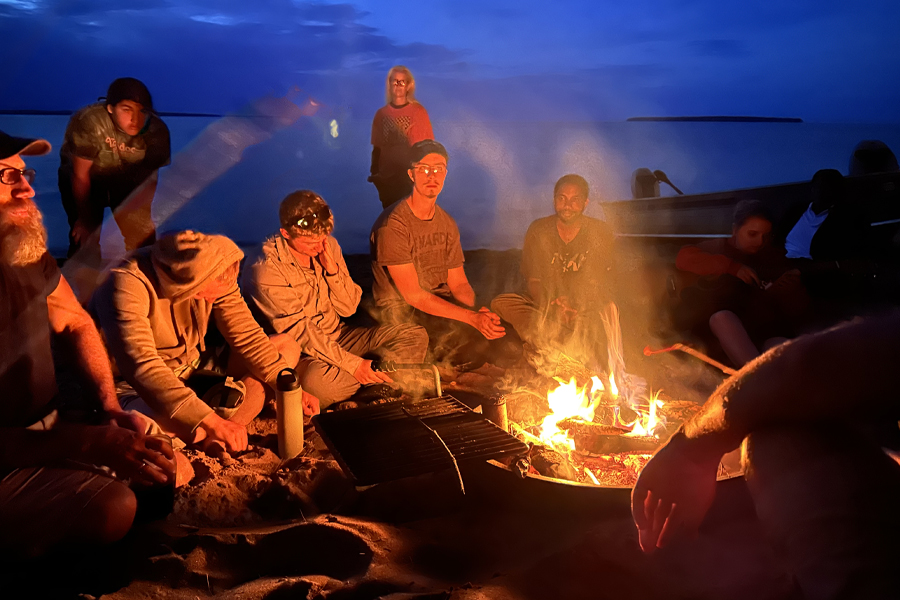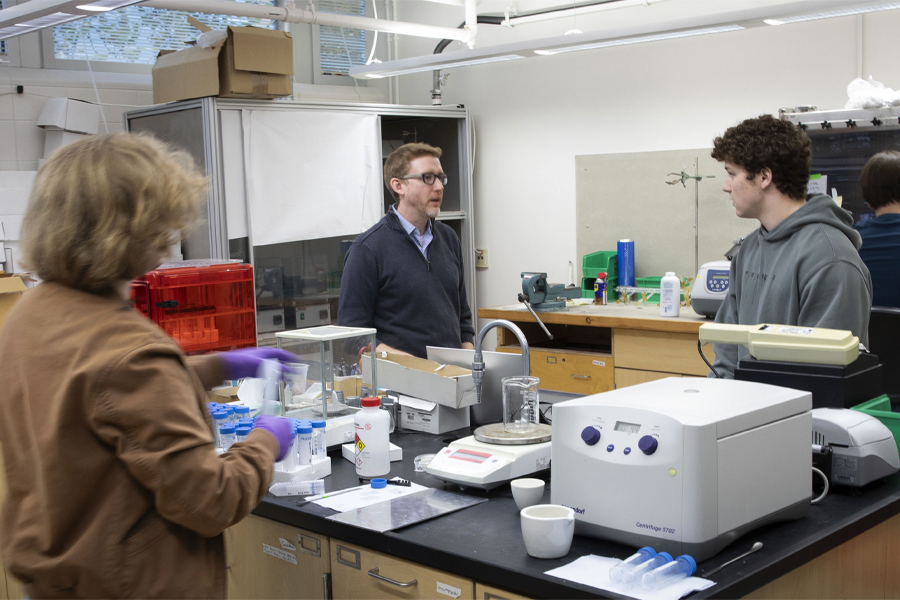UW-Whitewater awarded grant to provide water-related experiential learning opportunities
September 17, 2025
Written by Kristine Zaballos | Photos by Craig Schreiner
The Freshwater Collaborative of Wisconsin has awarded funding to the University of Wisconsin-Whitewater to provide resources for the recruitment of students grades 6 through college-age and to offer water-related experiential learning opportunities and cross-campus collaborative courses as crucial parts of the pipeline for water-related jobs here in Wisconsin.
The overall project, in collaboration with UW-Milwaukee and UW-La Crosse, is part of a larger collaborative effort geared toward student success and workforce development in water-related research and industry.
Elisabeth Harrahy, professor of biology at UW-Whitewater, is collaborating on “Programmatic Funding Building Capacity for Water Careers, Education, and Freshwater Policy Connections.” UW-Whitewater was awarded $11,431 in funding and will be one of three UW campuses that will implement intensive hands-on courses that were developed specifically for the Freshwater Collaborative.
Harrahy worked with UW-La Crosse colleague Tisha King-Heiden and UW-Milwaukee colleague Michael Carvan to develop the collaborative field course “Water Pollution Field and Lab Methods,” which will be offered in summer of 2027 as part of this grant. Students will gain experience in field sampling, water quality and chemical analyses and toxicity testing, and they will spend time on a research boat.

Elisabeth Harrahy, right, professor of biology, and student Zoe Mauk, left, of Milwaukee, explore the bed of Bluff Creek as part of a weeklong Freshwater Camp jointly presented by UW-Parkside and UW-Whitewater on June 16, 2022.(UW-Whitewater photo/Craig Schreiner)
“Each of the 13 Universities of Wisconsin offers expertise in some area of water, whether it be the Great Lakes, large rivers, water pollution, water policy, or water business. Collaborative courses allow students on one campus to take advantage of expertise on other campuses and to broaden their perspective and training,” says Harrahy. “Solutions to today’s biggest water challenges — such as agricultural water management and water pollution — will require such collaboration and interdisciplinary training.”
Biology is a top-10 major at UW-Whitewater, where students can specialize in marine and freshwater ecology as well as ecology, evolution, and behavior, cell/physiology or pre-biomedical professions. Students who study in marine biology and freshwater ecology often seek careers in conservation, public policy, research, education and other related fields. Over the next decade, the U.S. Bureau of Labor Statistics projects that employment opportunities will grow by 7% for environmental scientists and specialists, 7% for biological technicians, and 4% for zoologists and wildlife biologists.
A portion of the current grant will be used to provide activities for middle and high school students that are designed to raise the awareness of water-related issues and opportunities. In June 2022, Harrahy co-led with Jessica Orlofske (UW-Parkside) “Freshwater Camp: A Summer Field Experience for High School Juniors,” a water-focused high school camp in Southeastern Wisconsin that highlighted important freshwater habitats in the region, built confidence and skills with hands-on field and laboratory activities, and introduced potential freshwater career opportunities to students who spent three days at UW-Whitewater and three days at UW-Parkside, staying in the residence halls at night.

The funding for the project is part of a statewide initiative, backed by the Wisconsin State Legislature and Gov. Tony Evers, to tackle Wisconsin’s grand water challenges and support curriculum development, undergraduate research opportunities, career development, and field training experiences for students interested in studying water-related fields at the 13 Universities of Wisconsin.
The 19 new projects involve faculty, staff and students from all 13 Universities of Wisconsin as well as dozens of partners from industry, government, local communities, tribal nations, nonprofits and K-12 education. They will increase research and training opportunities for high school, undergraduate and graduate students and will address Wisconsin’s biggest water challenges, including PFAS and phosphorus pollution.
“The Freshwater Collaborative of Wisconsin shows the power of our universities when we come together to address Wisconsin’s needs,” said Universities of Wisconsin President Jay Rothman. “By expanding water-related degree programs and providing students with professional training opportunities, our universities are preparing future leaders while also strengthening Wisconsin’s economy, protecting our natural resources, and serving communities and industries throughout our state.”
Grant descriptions for the latest funded projects are available at the Freshwater Collaborative of Wisconsin.
For more information regarding the UW-Whitewater projects, contact Elisabeth Harrahy, professor of biology, at harrahye@uww.edu or 262-472-1086.




